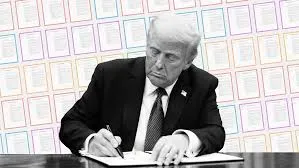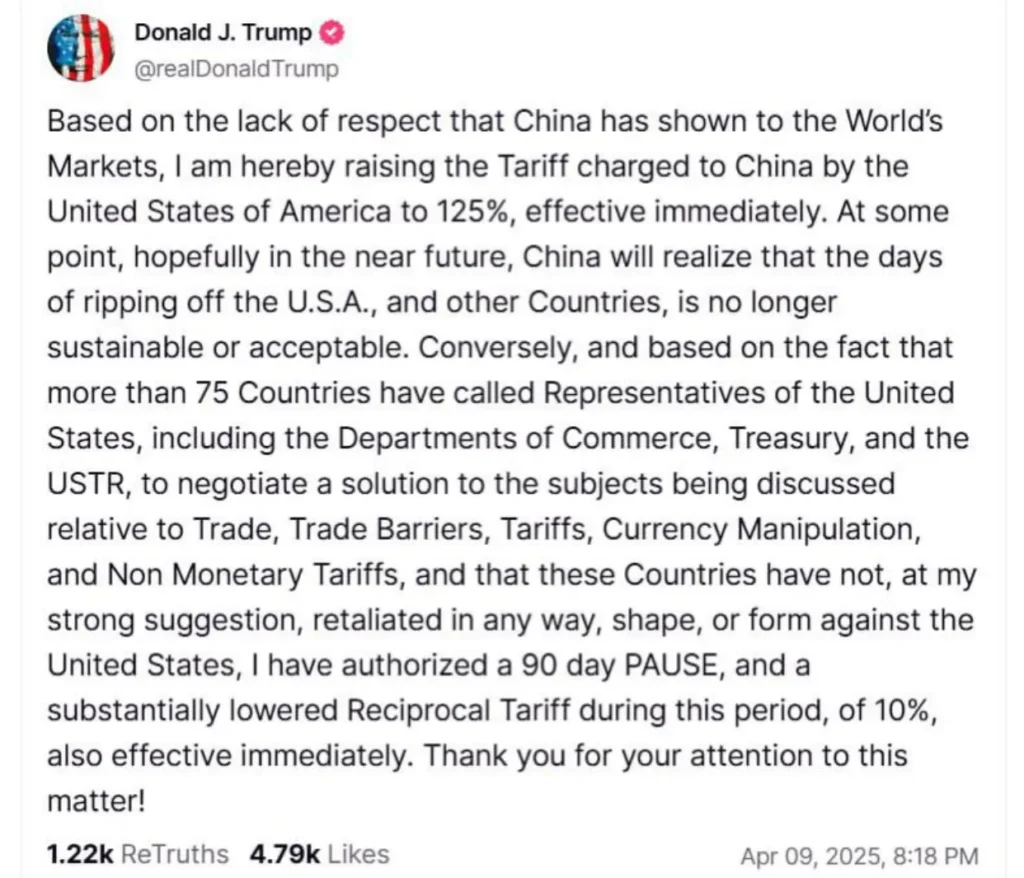
90-Day Tariff Pause: Trump Intensifies Pressure on China
In a significant shift in U.S. trade policy, President Donald Trump has announced a 90-day suspension of tariffs on imports from most countries, reducing the tariff rate to 10%. However, he has escalated measures against China by increasing tariffs on Chinese imports to 125%.
This abrupt policy change comes amid global market volatility, rising interest rates, and concerns about a potential U.S. recession. The initial broad tariffs had contributed to market instability, prompting Trump to pivot toward bilateral negotiations.
The intensified tariffs on China are a response to its previous trade practices, including allegations of intellectual property theft and forced technology transfers. These measures are intended to pressure China into trade concessions, though they risk further straining U.S.-China relations.
The decision has elicited mixed reactions. Republicans largely view it as a strategic move to protect American industries, while Democrats express concern over potential negative impacts on consumers and global trade dynamics.
Internationally, allies such as Japan, South Korea, and India have been affected by the global tariffs and are seeking negotiations to address trade imbalances.
Market responses have been volatile. The initial announcement of broad tariffs led to a market selloff, but the subsequent 90-day pause and focus on China have caused fluctuations as investors assess the potential economic impacts.
